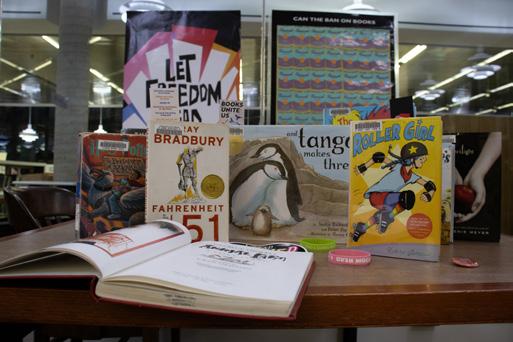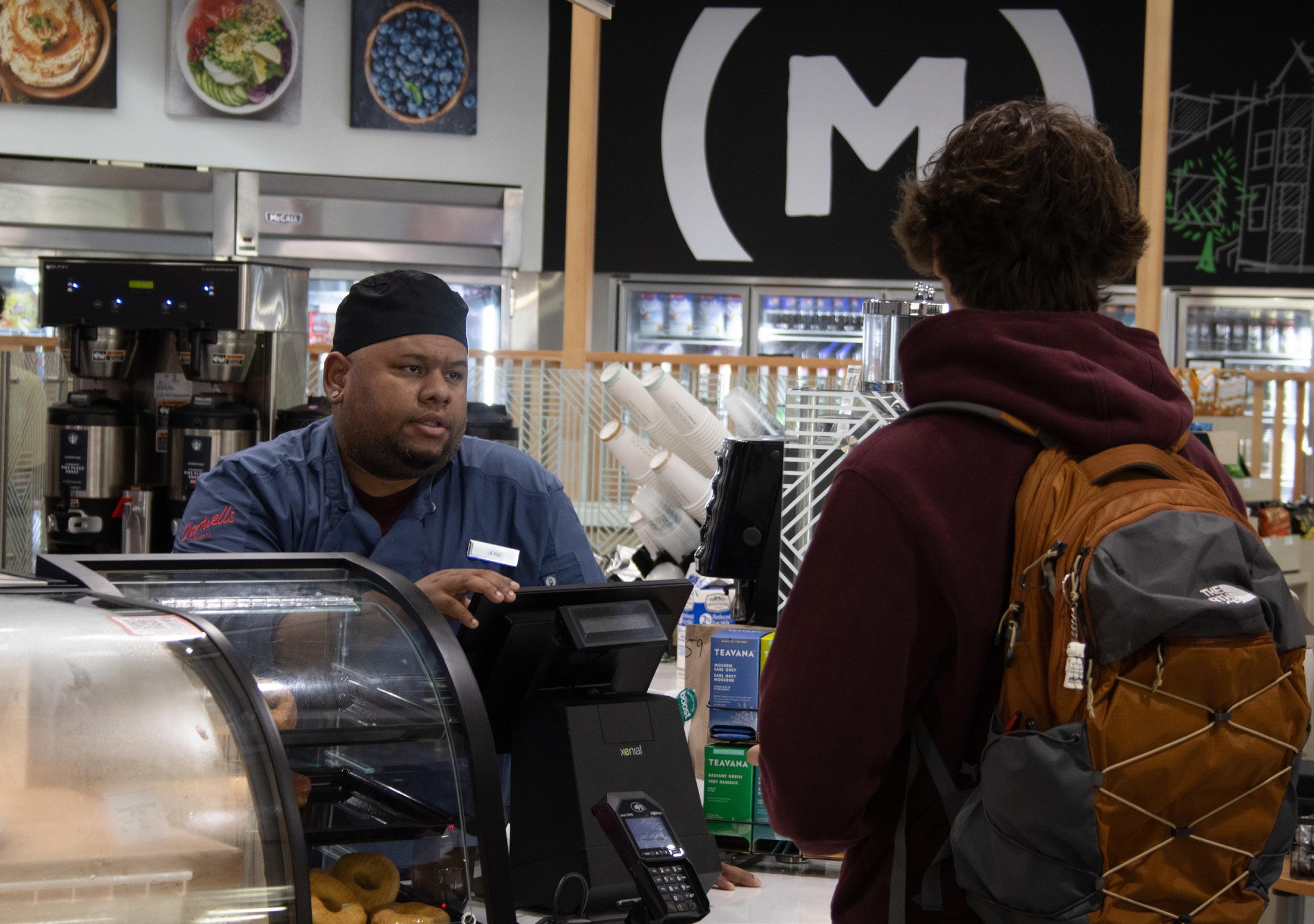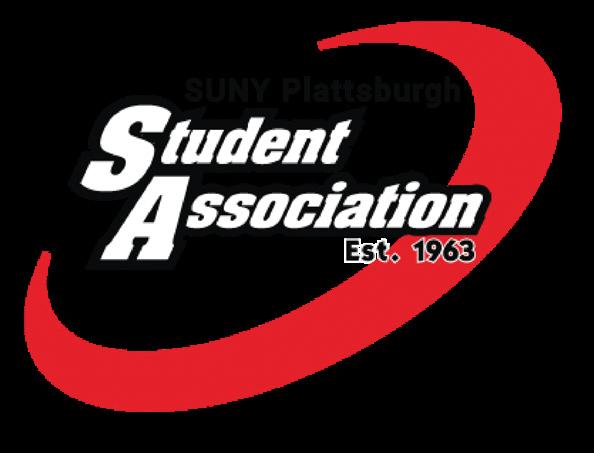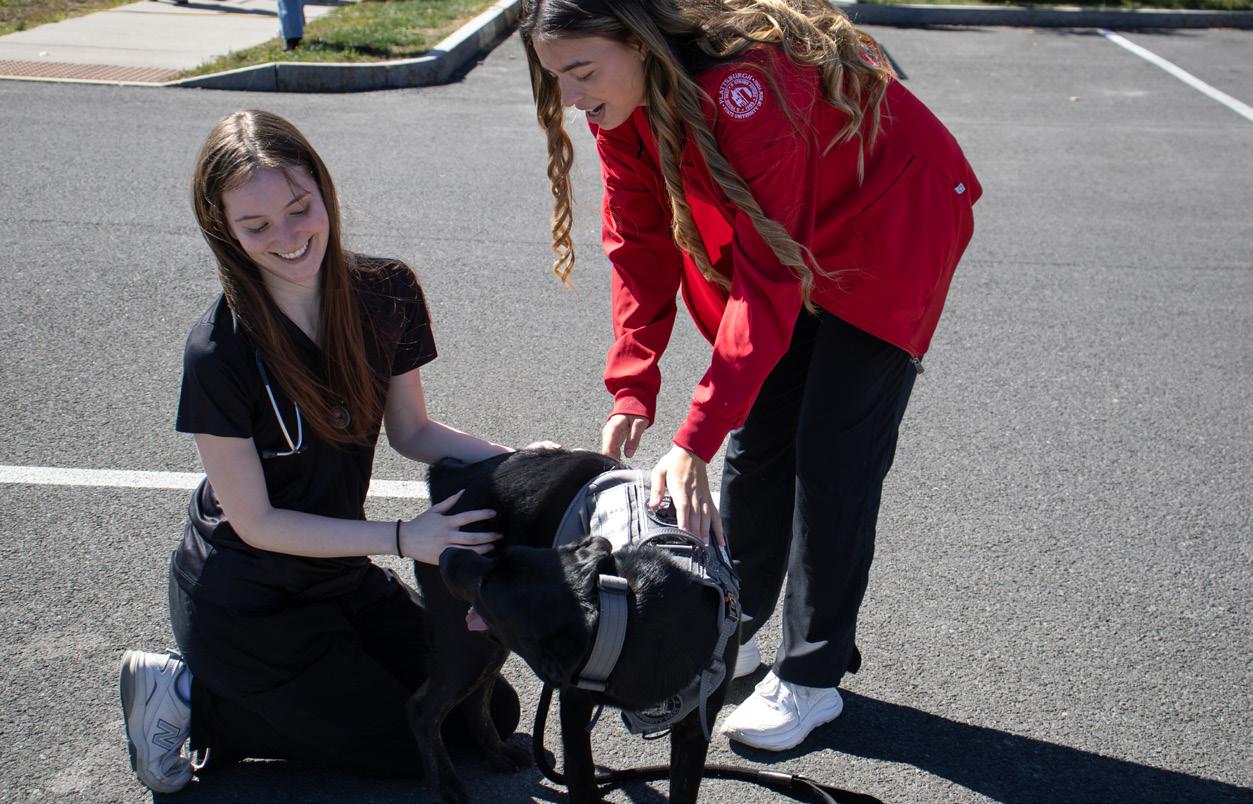Book bannings: Protecting children or reducing rights?



Book bannings: Protecting children or reducing rights?


BY GRANT TERWILLIGER News Editor
As a new semester starts and Tim Hortons is now closed, the Cardinal Cafe on campus adapts to having to serve a larger number of students and training of new employees contributing to inconsistency and efficiency issues.
The Market Cafe on campus is still very new to campus with this being the second semester of it being open. Students feel that the Market Cafe is conveniently located, but doesn’t compare very well to corporate Starbucks locations.
“The only thing is convenience. If you’re walking to class, and you only have 20 or 30 minutes it doesn’t make sense at all to go off campus,”
First year Khadeejah Memon said. “I went to Starbucks once and then I found out that they didn’t have the app. So, then I didn’t even order from there.”
Daniel Leatherman is the new Resident District Manager for dining services on campus. This semester with CAS he has been working to elevate food menus on campus and has brought back the popular option to order any grande beverage for a meal swipe at the market. Leatherman acknowledges that students are always looking for ways to save money and earn points with Starbucks.
“We know that many students love Starbucks Rewards and we hear how important it is to you. Because our campus café is a licensed Starbucks ‘We Proudly Serve’ location and not a corporate store, we aren’t able to participate in the Starbucks Rewards program,” Leatherman said. “We’re always exploring other ways to bring value and perks to our guests right here on campus.”
The prices at the market have

also been a concern for students on campus with everything becoming more expensive as a result of inflation and convenience.
“I feel like the prices are kind of wildly high, but I feel like it’s just college; they’re high everywhere on campus,” Memon said.
The Market Cafe has faced obstacles with their food not being consistently made well. Some students have reported there being less amount on bagels and have noted that the workers are not always efficient.
“It’s never the same. Sometimes I get a spoonful of cream
cheese. Other times they put half a brick on it. Like, are they not trained to put a certain amount of cream cheese on a bagel,” Libbie Pecora said. “They are not trained, you can tell by the quality and the consistency of the product,” Pecora said.
This doesn’t necessarily mean though that every worker at the Market Cafe is inconsistent. Some workers go the extra mile for students.
“Jose is the best. He always makes my coffee, and when they didn’t train him on how to make them, he went to YouTube and watched videos on how to make all the Starbucks drinks,
and he makes them perfectly,” Pecora said.
According to Leatherman Chartwells associates are trained for a week and then are expected to continue their training on the job.
“At a minimum, Chartwells associates undergo a week of onsite onboarding. They are paired with a mentor who guides them through their daily tasks using a structured onboarding plan. Additionally, we have introduced a proprietary internal app this semester that extends their learning experience throughout their career with us,” Leatherman said.
As new employees get accli-
mated into working at the cafe employees with more experience find themselves having to constantly watch the new employees while working.
“The newer employees that are working there, the older ones with more experience tell them what to do as they’re going, they just walk around so confused,” Pecora said.
Email GRANT TERWILLIGER
cp@cardinalpointsonline.com
BY ERNESTO CASTORENA Contributor
Across SUNY Plattsburgh, the phrase ‘budget cuts’ carries different meanings depending on where the funds originate. For clubs recognized by the Student Association (SA) budgets rise and fall with enrollment. For TRIO Student Support Services (SSS) funding follows a federal grant cycle.
For clubs, constraints start early. Galilean Society president Kaelyn DeKalb said that funding requires detailed planning well in advance with the following semester’s activities mapped out before even receiving funds. Even then, some opportunities get lost.
“We’d hold a lot more events with food. We wanted to do one last semester with astronaut food, but didn’t end up doing that because we had two clubs collaborating and no funds,” Dekalb said.
This year, the Galilean Society was required to submit a budget smaller than the year before trimming $50 to $75

from its plans. But with unique and academic goals to visit a planetarium in Montréal and an observatory in Tupper Lake even a modest cut can mean fewer trips, events and opportunities for students.
“We just lost twin valleys,
which had an observatory. We don’t have that anymore,” Dekalb said.
On the SA side, limits are set by enrollment. Director of Student Activities Sarah McCarty said that club budgets depend on student enrollment and
must be carefully matched to avoid overspending.
“Students within the SA do some cuts across the board in order to stabilize their budget,” McCarty said.
To address the reductions and looking ahead with 77
clubs registered, SA Advisor Tyler Hargraves, seeks to add small additions to club funds each semester.
“We’re reducing club budgets by 20%, but what we are doing to supplement that is adding another $5,000 to additional allocations each semester,” Hargraves said. “Would they see a reduction? Potentially, but would it be a drastic reduction? No. It’s all based on enrollment.”
While that is the case Hargraves emphasizes there are multiple resources to help with funds, including CAS grants for travel and programming, and resources such as decorations that have been stored by the SA ready to be reused.
Enrollment numbers directly determine how much funding is available because each student pays a mandatory Student Activity Fee. If the student body were to vote to make the fee voluntary each student could opt out potentially shrinking the SA budget dramatically.

Continued from page 1
Many clubs could lose most or all of their funding forcing them to cancel trips, cut events or even go inactive. The next vote on the Student Activity Fee is scheduled for this spring.
TRIO operates in a different lane.
Ashley Durocher, Director of TRIO SSS, explained,
“TRIO Upward Bound and TRIO SSS are part of the federally funded national TRIO programs,” Durocher said.
While the Upward Bound federal grant was cancelled, the Administration’s FY2026 budget proposal does have wording to eliminate TRIO, but there would be a vote from congress for this to be able to occur and TRIO programs have
historically had strong bi-partisan support. Kimberly Jones of the Council for Opportunity in Education referred to the decision as an attack on students facing obstacles in higher education.
“a direct attack on students who dare to dream of college in the face of adversity,” Jones said in a press release from the Council for Opportunity in Education.
The status of SSS is steady as TRIO has been renewed for this academic year as part of a five-year grant cycle. Regardless of the Upward Bound cancellation no operations at SSS have been impacted. Looking ahead, advocacy continues.
“We’re going to Washington D.C. every year to advocate for a level or increased funding… We’re more than an academic support program. We’re more than advisors. We really care about and invest in all of our students... it’s about
the potential that each student has and that’s (SSS) helping them unlock that potential,” Durocher said. Each student has the potential to make change by being active on campus, being aware of how you can support campus life and speaking up to their congressional representatives. Rep. Elise Stefanik represents the 21st congressional district that SUNY Plattsburgh’s programs are in. In order to keep programs like TRIO SSS strong, more info on protecting TRIO is available on the Council for Opportunity in Education website.

BY GRANT TERWILLIGER News Editor
On Sept. 17, the Student Association (SA) held a meeting in which Chief Justice Tyree Ravenell was accepted to the board.
The meeting was shorter than participants anticipated as a result of the absence of Student Association President Charlotte Feliz, causing an already small agenda to be shortened further, as the senate wished to wait for her presence to vote on many items.
Vice President Jack Sweet expressed his appreciation for everyone coming together for the first meeting of the SA.
“We’re happy to have you all here. We’re excited for this year, and we want to keep the interest going,” Sweet said.
It’s been a slow start to the year with clubs on campus with many just trying to recruit new mem-
bers and get people more involved.
“I was very active this week on campus, but it seems like there’s not a lot of student activity lately,” Senator Zachary Wiss said.
The SA meets weekly on Wednesday nights at 8:30 p.m in the Angell College Center. The meetings are open for students to attend.










BY ARI FROEDDEN Contributor
“And Tango Makes Three” is a nonfiction book intended for three to eight year olds. The contents include the true story of two male penguins, in New York’s Central Park Zoo, adopting an egg and raising the chick as their own. The overall message was that families can look different, as the penguins live happily ever after.
It was the #1 banned picture book in the most recent school year, with challenges citing “illegal obscenity” and even calling for librarians to be arrested.
Last year, 10,046 book bans occurred in 220 public school districts across the United States. 65 of the bans were in New York state. Of the 4,231 titles targeted, themes about LGBTQ+ people, characters of color, and social justice issues were prevalent.
In the U.S.A., bans tend to be in schools and libraries, targeting children rather than limiting adults’ entire access to purchasing books.
A frequent argument for book bannings is that while parents may have the right to decide what content is available to their children enrolled in public schools, the uncensored titles are available to read elsewhere. In theory, any parent who wants to can provide their own children with any book they like. This theory of individualism in education has become more and more prevalent especially with the rise of homeschooling and is applied to sex education, politics, and other topics that have historically been a core aspect of school curriculum. It also cannot be ignored that in the midst and the wake of COVID-19 lockdowns, parents were expected to take on a stronger role in their children’s education, which was an emotional and financial hit on many families.

Over 4,000 more challenges to books in public libraries happened in 2023. Challenges to books in schools and in libraries tend to be concentrated in states such as Florida, Texas, and Missouri, which means access to targeted books is dwindling for entire communities.
People who want to limit education do not stop at their own school district, and in their frequently bigoted ideas, tend to believe that no child should have access to the content that is against their personal values. Limiting access to free resources is targeted censorship towards those who cannot afford to supply themselves with the materials.
Many of us accept and embrace our first amendment, so
the idea of our access to knowledge being limited can be a shock. In reality, book bans in this country are not new. The first book banned in the United States was Thomas Morton’s New English Canaan, which was published in 1637, and outlawed soon after for challenging strict political structures of the time.
In recent years though, challenges and bans have skyrocketed in number. Censorship in general has become, to many people, a symbol of an escalating political climate and a lean towards authoritarianism. Book bans are being pushed for by the Trump administration, and have become an increasingly volatile topic in the media. There is little question that some content is inappropriate
for all age groups. So, is there a better alternative?
Instead of outright banning content that we believe could potentially misguide, equipping the population with the skills to understand things they encounter is far more valuable. Currently, 28 states have pending media literacy legislation for K-12 schools, and higher educational institutions have been implementing such courses already. Being able to critique and interpret the content of books, news articles and information on the internet is a healthier path to take than sheltering people. Should any book be banned? Literature is an art form that represents, critiques, and theorizes on reality. Some people
believe books carry dangerous ideas or are explicit, but that doesn’t detract from their worth if approached with an educated and critical lens. Using banning books as a cure for undesirable content is a flaw in logic because it assumes the content in them is to be taken as true and aspirational, when in reality they are intended to be understood and critiqued on a deeper level. Books should stay accessible to the public regardless of differing views, because books provide the means to challenge ideas and give people the potential to learn, change, and grow from what they’ve read.
BY SOPHIE ALBERTIE Opinions Editor
‘Prove me wrong. ’
A phrase that has become increasingly popular over the last five years dawns brighter with every passing news cycle. In the world of academia, divisive political speakers come to college campuses to debate with students. The ethicality of this in itself is debatable, as these conversations are usually posted on the internet to “grift” or appeal broadly to both sides. The controversies they generate are what make for more clicks and views. How are the intentions behind this emphatic campaign for ‘open discussion’ viewed by college students?
SUNY Plattsburgh first year Faith Jalbert says she doesn’t think that the practice of political speakers coming to campus is ethical.
“Most people are at college to be learning about the world and might not necessarily be educated on the subjects discussed,” Jalbert said. “This feels like someone trying to recruit young people to pick a side. It feels like propaganda.”
Charlie Kirk, conservative podcaster and founder of Turning Point USA, was a prominent figure in the world of campus debaters. Before his assassination, Kirk visited and debated with students at approximately 25 universities.

Most of those who supported him prefaced their questions with I love you before getting up to the microphone, cementing Kirk as not only a polarizing figure but an influential one. Those who liked his views adored him to the point of worship, but those who hated everything he stood for also vehemently showed their disdain.
It felt inevitable for Kirk to gain the platform that he had based on this factor of black and white thinking alone. In the wake of his death,
some might argue that students are reaching newfound revelations when it comes to the concept of debaters on campus. Junior Rebekah Abdul-Wahhab argues that people will continue to weaponize political violence to push certain agendas. “I think political rhetoric is often detached from social reality. These issues people think they can debate concern actual lives. There’s no longer a debate if you argue that a certain group of people shouldn’t have rights, that’s
not a debatable topic,” Abdul-Wahhab said. “Debating right now is popular, but very flawed. There isn’t enough due diligence when it comes to looking at the track record of a certain speaker. The way it’s being done isn’t something I would want to see on my campus.” I couldn’t help thinking about students from different universities who may have felt the same, especially after witnessing how ugly the visitations could get. It is unarguable that being educated on
certain topics is essential before trying a hand in political discussion, but what impact could seeing a clip of oneself on a Twitch stream or Instagram reel have on developing young minds? Was the intention ever to encourage open dialogue, or was it simply to exhaust the opposing side? College students should be encouraged to get involved politically in any way they can through the resources on campus, and these resources should not include political influencers who are looking to persuade rather than inform.
BY SOPHIE ALBERTIE Opinion Editor
When is the line drawn between healthy habits and habitual self destruction?
In recent years, society has somehow incorporated bulking and weightlifting into every aspect of exercise routines. Protein powder is all the rage, a seemingly quick fix to build one’s temple faster. One of the most asked questions on fitness forums like Quora or Reddit concerns how much protein one can consume before it becomes medically dangerous.
Dr. Eric Berg, a world-renowned Nutritionist and fitness content creator, warns that the most dangerous ingredient in protein powder is maltodextrin, which spikes the blood sugar and increases agitation in bodybuilders and gym zealots. This key ingredient in the formula of protein powder is found in nearly every household brand and is incorporated into anything digestible. This directly prompts young fitness goers to think they don’t have to dedicate as much effort into their everyday routines, as long as they get their scoops for the day.
“Putting this in your body is worse than sugar, even in an effort to bulk up your muscles”. Berg said.
Nowadays, being physically healthy isn’t just about taking walks outside and dancing to a guided instructional video on the television. It’s also not about making cottage cheese ice cream and protein powder pancakes. There’s a regimen for most students even here on the campus of SUNY Plattsburgh.
For some students, fitness is the puzzle piece that saves their health. Sophomore Yasmine Alregabi said going to the gym every day has helped her journey as an athlete on the track team, and to improve her relationship with food and diet culture.
“Cross country is heavily centered around eating disorder culture. You’re kind of encouraged by coaches to participate in unhealthy eating habits; it’s a com-

mon theme. The gym helped me get over that”, Alregabi said. For each day of the week, she says she focuses on conditioning a different part of her body, such as glutes on Monday and abs on Friday.
“I believe it’s discipline over motivation, it’s always something I’m going to do. Whether I feel good or not. I know the gym will make me feel better.” Alregabi said.
Where many fitness gurus find overtake, one student finds bal-
ance. Across the board, going to the gym to better one’s physical health and build muscle is not the issue. When chemicals come into play, that’s when the balance is lost between lifestyle and life-sucking.
Email SOPHIE ALBERTIE cp@cardinalpointsonline.com
‘The Summer I Turned Pretty’ brings back good tv drama
BY SOPHIE ALBERTIE Opinions Editor
Here’s something to be said for a piece of media that unites the people through mutual anticipation, I just don’t know why her name had to be belly.
The series finale of “The Summer I Turned Pretty” premiered on September 17, and features a very important ‘decision’, one that diehard fans of the show have been placing their bets on since the show first premiered in the Summer of 2022: Who will she choose?
After three years, Isabel “Belly”
Conklin picks one of the two Fisher brothers. Both boys who have been pining after her since childhood. Now she takes her pick and audiences can finally rest. Young girls have taken to X with the same ferocity they feel choosing a pillow at a slumber party. Some argue she made the wrong choice, which would be pretty unfortunate considering how much time was spent waiting for the slow burn to play out. For those who paid attention, the decision seemed obvious from the start.
From an outsider’s perspective, the mob that has amassed from a
young girl choosing her own love triangle is comparable to the attention that the “Twilight” franchise received back in the early 2010s. If this is what it takes for the community to make a comeback in the form of trashy cult classic television, Jenny Han and the entire production team is certainly off to a good start. For anyone wondering, Belly made the right choice.
Email SOPHIE ALBERTIE cp@cardinalpointsonline.com


BY SOPHIE ALBERTIE Opinions Editor
Remember Ned Fulmer? I wish I didn’t.
For those of you with less than 12 hours of screentime per day, wife-guy try-guy Ned Fulmer from Buzzfeed’s “The Try Guys” was banished from the internet some time ago for cheating on his wife with one of his coworkers.
Usually, adultery receives enough public shaming — everyone saw the clip of the two cuddlebugs at the Coldplay concert earlier this summer. The fact that Fulmer coined the phrase “wife guy” made things a whole hotter degree of worse. Nevertheless, there’s no need to worry about what happened to him following this situation.

Earlier this week, the YouTube channel “Rock Bottom with Ned Fulmer” posted its first video: An hourlong podcast with his ex-wife, Ariel, rehashing the very relevant situation. If anyone was wondering how much screen time Fulmer gives himself, the answer is more than enough. Most viewers are unable to make it through an incredibly uncomfortable three minutes where we as an audience are reminded that he ruined his reputation .. because he tells us himself.
If you are somehow one of the stubborn ones who see things through, there is no reward waiting on the other side of the two microphones. Ariel does confirm that she does not forgive Ned and will never forgive him. So brave.
In these trying political and economic times, the fumbling Fulmer begs the question: How do I make this about me?
Needless to say, it comes as no surprise that dislikes are turned off on the video. There are layers to this; the lack of accountability he takes in front of his ex-wife, the half-hearted monotone voice he maintains while repeating that he “screwed up”, the fact that this video even exists, and the fact that Ariel still has to answer questions about what Ned did to her anytime she meets someone new.
I argue that they are both equally to blame here. Two voices and an hour of free time make a podcast. Ned, quit while you’re ahead. Next time, clip your self proclaimed redemption arc at the first three minutes.
Email SOPHIE ALBERTIE cp@cardinalpointsonline.com
